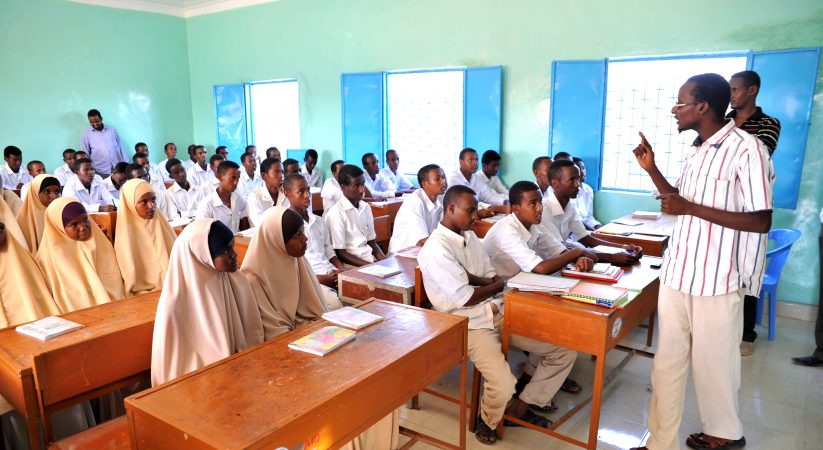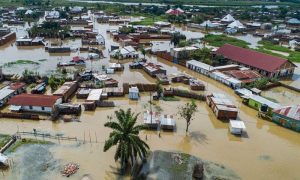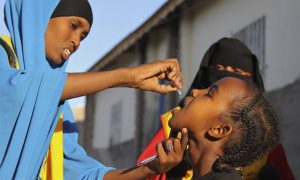
Thanks to a GPE-funded program implemented by CARE in partnership with the Somalia Federal Ministry of Education, Culture and Higher Education, Somalia’s Education Management Information System (EMIS) has been improved.
“I leave the office when I am tired and stressed after organizing files manually and hardly find time to relax with my family.”
Abdi*
Headteacher in one of the GPE-ESPIG-supported schools
Abdi, a headteacher in one of the GPE-supported schools in Somalia, heads to his workstation every day to be greeted by a mountain of paperwork. He is required to sort and organize the school filing system manually.
This is a time-consuming activity that is bound to result in errors — time that could be used for teaching, school supervision and quality checks.
His wish was to have this process automated in a system that would be user-friendly, and to be trained to use it. This would improve the data collection process, provide easier storage and retrieval of student and teacher information, save valuable time, improve the quality of data, and improve his work-life balance!
The centralized Education Management Information System (EMIS) is the tool that Abdi needed. It is a comprehensive information system designed to collect, store, manage, and analyze data related to education.
The system is managed by education administrators who collect and assess data at the school, district, and regional level to improve education quality, identify areas for improvement, and ensure efficient resource allocation for educational institutions and systems.
Initiated in 2016 by the Ministry of Education, Culture and Higher Education (MOECHE), the EMIS collects and analyzes data from schools on an annual basis.
Since its inception, the system has had several challenges in ensuring that it is effectively utilized. Persistent challenges include lack of individual student-level data, gaps in capturing data on out-of-school children (the only data sources on the latter group are population estimates derived from current enrollment data and project-level studies).
The GPE-funded program sought to enhance capacity at Federal Member State (FMS) level to manage, monitor and regulate the education sector. The program has made a significant investment in operationalizing EMIS centers through rehabilitation work, conducting reviews on the system capacity and data audits to improve the system (management and data analysis, across the MOECHE and FMS MOEs).
In addition, the program developed additional functions that will show the overview of the national examination results for grades 8 and 12.
Furthermore, the program supported 14 EMIS staff both at FMS MOEs and MOECHE levels with monthly salaries to oversee the smooth running of the system.
Through the program, a national EMIS policy was developed, validated, and disseminated to all FMS and other education stakeholders.
_____________________________________________________________________________________Xafiiska Wararka Qaranimo Online | Mogadishu, Somalia
_____________________________________________________________________________________Advertisement
_____________________________________________________________________________________







